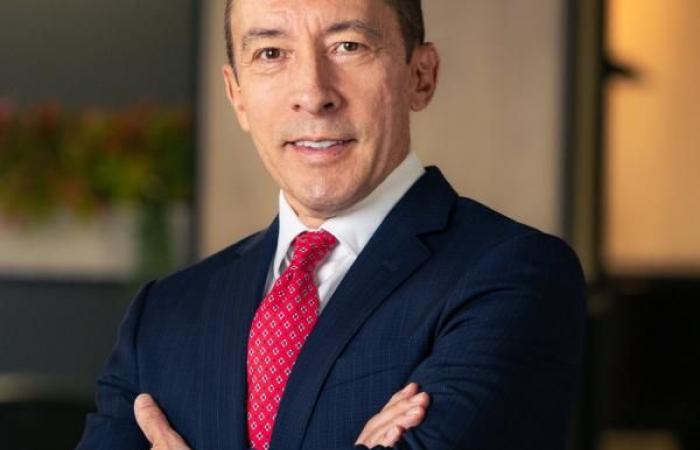The increase in the price of freight, raw materials such as copper and the increase in orders have generated pressure for equipment supply companies for the electrical sector. In fact, this led Hitachi Energy to launch a global investment plan for US$4.5 billion that will include expansions at all of its plants.
(We suggest: Ecopetrol and Petrobras announced drilling of the Uchuva 2 well in the offshore Caribbean)
Ramón Monrás, president of the company for Latin Americaexplained that they are working with customers to negotiate the impacts they are having such as order delays.
How did you close last year and what expectations do you have for this year?
To talk about the results of Colombia it is important to start from the Hitachi Group as a whole. We had completely extraordinary results, a record that had never been seen before. The Group tripled its business compared to three years ago when we emerged as Hitachi Energy after separating from the ABB Group.
Last year we sold close to US$23 billion, a truly spectacular figure. Also in the case of the backlog that we are going to execute, it reached US$30,000 million. This means that all factories, including ours in Latin America and Colombia, are completely full due to the orders received and this is not going to be a one-time thing, but will continue because all countries are on the path of transition. energy and are requiring the equipment.
(Also read: Profits of the largest energy miners fell 44% in 2023)
At the level of Latin America and particularly in Colombia we have strong changes in the geopolitical environment that can delay some projects that move from one place to another. The result in Latin America was good.
Growth in the fiscal year that ended in April 2024 in Latin America was 9.5% and in Colombia it was 7%.
Based on these results and your investments, what do you expect for this year?
These results triggered the need to invest a lot, so the Group is making enormous investments to be able to serve this market, for which investments of US$4.5 billion have been announced for factories, engineering centers, strengthening the research and development area, etc. To this we add that in April we announced US$1.5 billion more for all transformer factories.
(See more: The effects that changes in the energy stock price cap would have)
In Colombia we made the previous year’s investment of $25,000 million to expand production capacity a little more, but we are working on proposing additional investments.
We are going to make more investments that will be announced later when we have the plan approved by the corporate, for the factory in both Pereira and those in the region.
Are there going to be more investments in the country?
Yes, what we did the previous year is not enough and we need to be in tune with the behavior of the market. We have a backlog in the country of close to US$200 million, which we have to execute in large part this year and another part next year. So we need that additional production capacity, also because due to lack of product we did not adequately serve the Latin American market the previous year.
(Of interest: Enlaza, a subsidiary of GEB, explains what happened with the Colectora license)
Our factory in Pereira covers Latin American countries and we have also exported a lot to the United States, Canada, the United Kingdom and Spain. So we have to serve the market better because with the current conditions we are not enough.
What other factors explain the lack of product?
It is a combination of factors, the raw materials, the equipment that we bring to manufacture are imported and are being highly demanded around the world because the energy transition requires more minerals for the equipment.
But there is also a certain limitation in shipments, we as a Group have a great advantage and that is that we have great capacity to negotiate with the suppliers of these materials.
(Related: These are the wind farms that would be connected to the Collector line)
There are delayed deliveries, but the biggest limitation at this time is production capacity, because even though we have expanded factories around the world, orders have been so overwhelming that they are not able to manufacture what we need. We will need to buy more ovens, more winders, more main equipment to increase production.
We hope to be able to serve better, but not completely yet because the growth of the market is quite large.
How are you handling this for customers?
We are talking to them and we are proposing new negotiation and work schemes, so that they can ensure the supplies of equipment and technology they require for the concessions they are winning.
(Also: This is how the offshore wind round will look, after the announced adjustments)
For example, we suggest signing some agreements that we call Capacity Reserve Agreements so that we separate manufacturing slots that guarantee the supply of equipment. This is particularly useful for offshore wind projects, which require high voltage direct current technology.
Thanks to this we have achieved the backlog to execute in the coming years.
There has been a high increase in freight rates, as well as in the price of raw materials. How affected have your costs been?
In general terms, the costs of raw materials for the electricity sector have increased. We believe that this can continue with high prices in the following years precisely due to the growth in global demand. What we do is price management, in which we talk to clients to tell them when it is necessary to transfer part of that cost to the final price.
DANIELA MORALES SOLER
Portfolio Journalist






